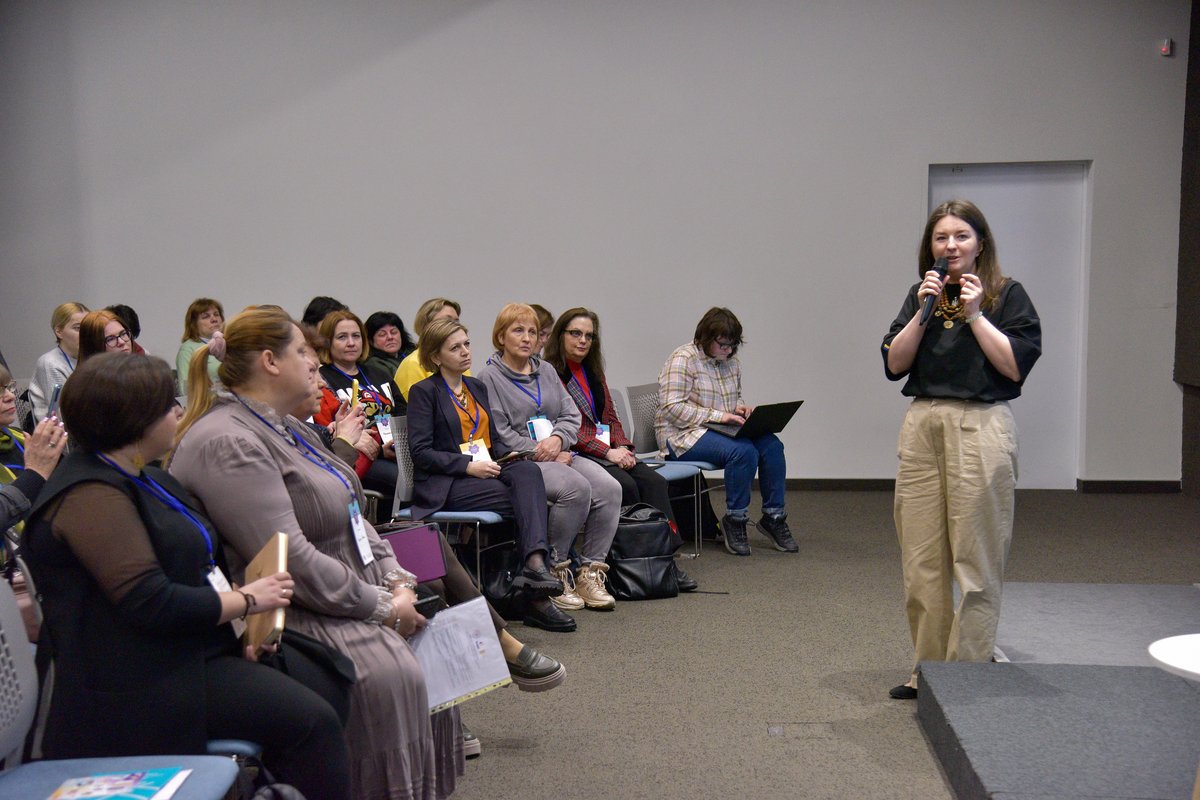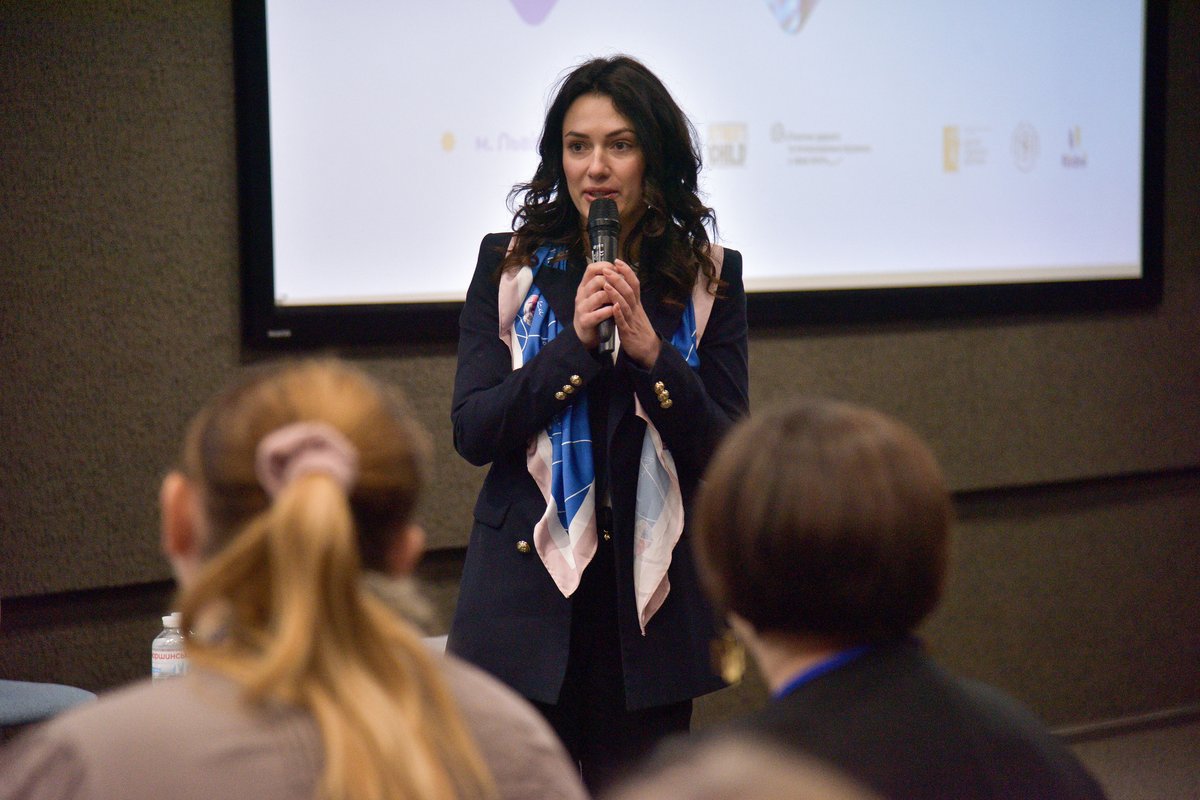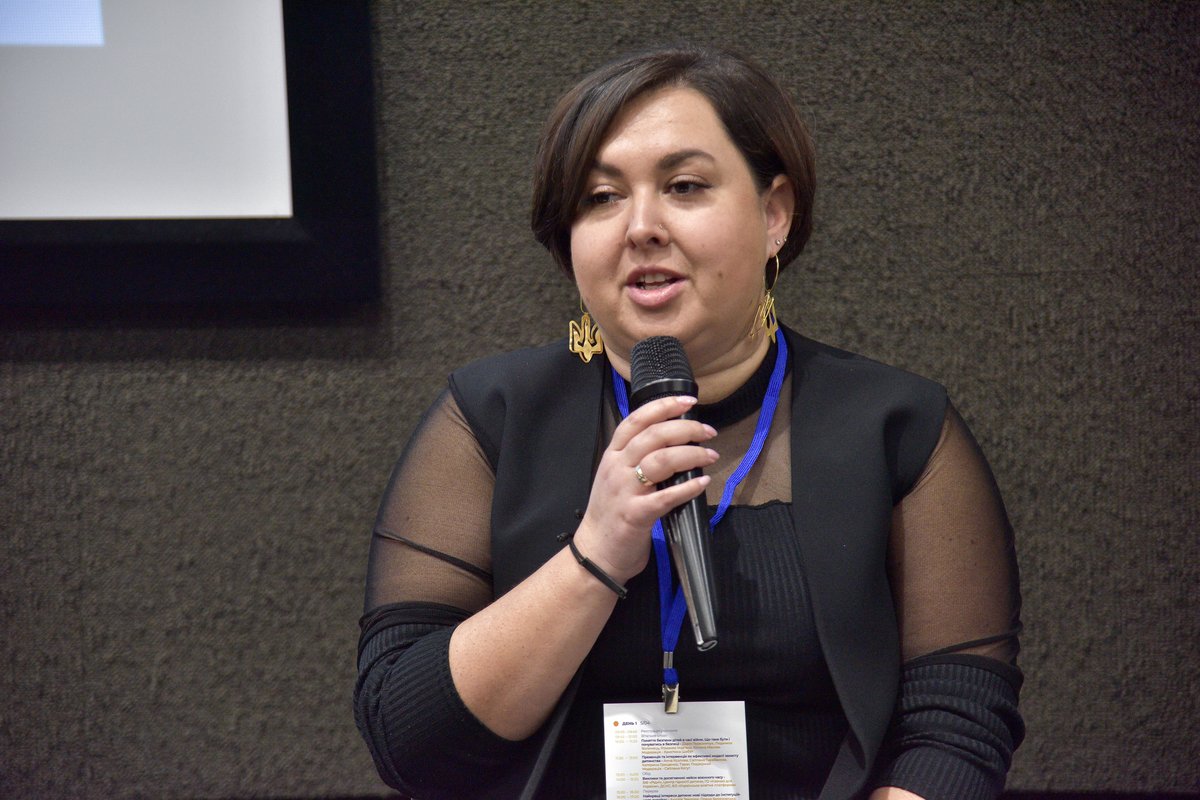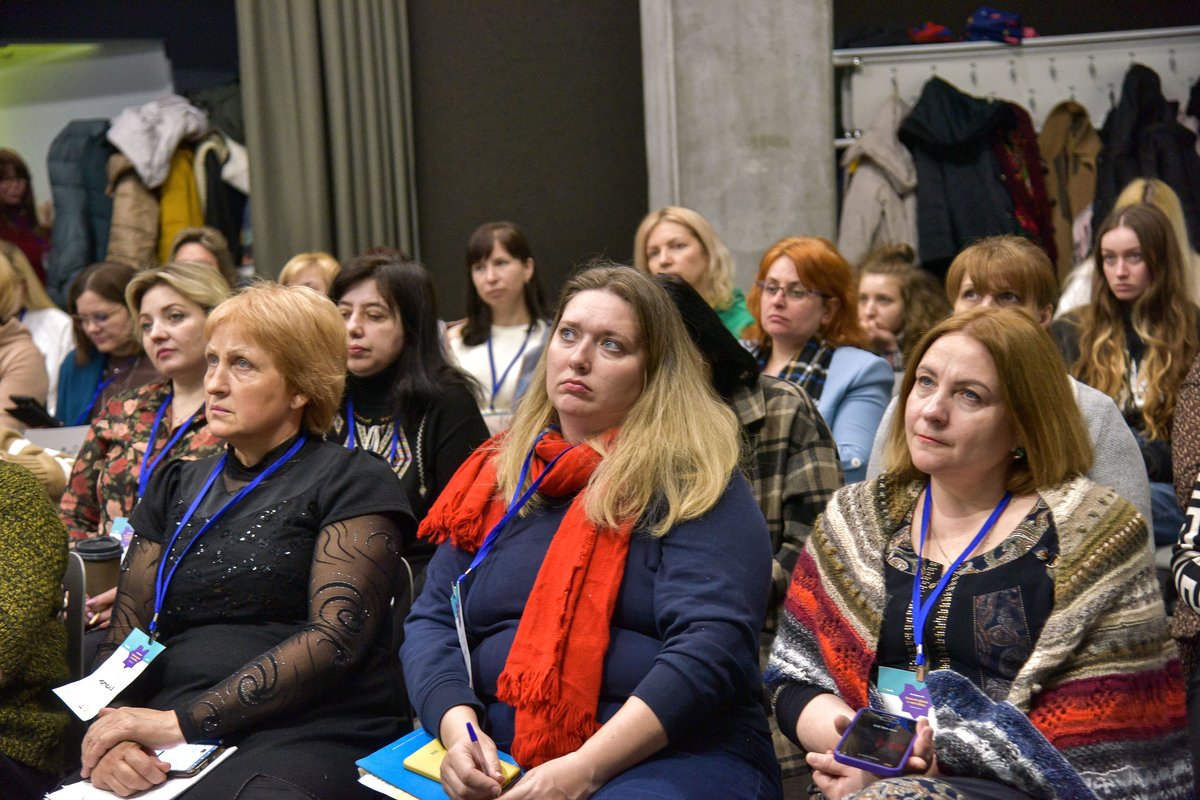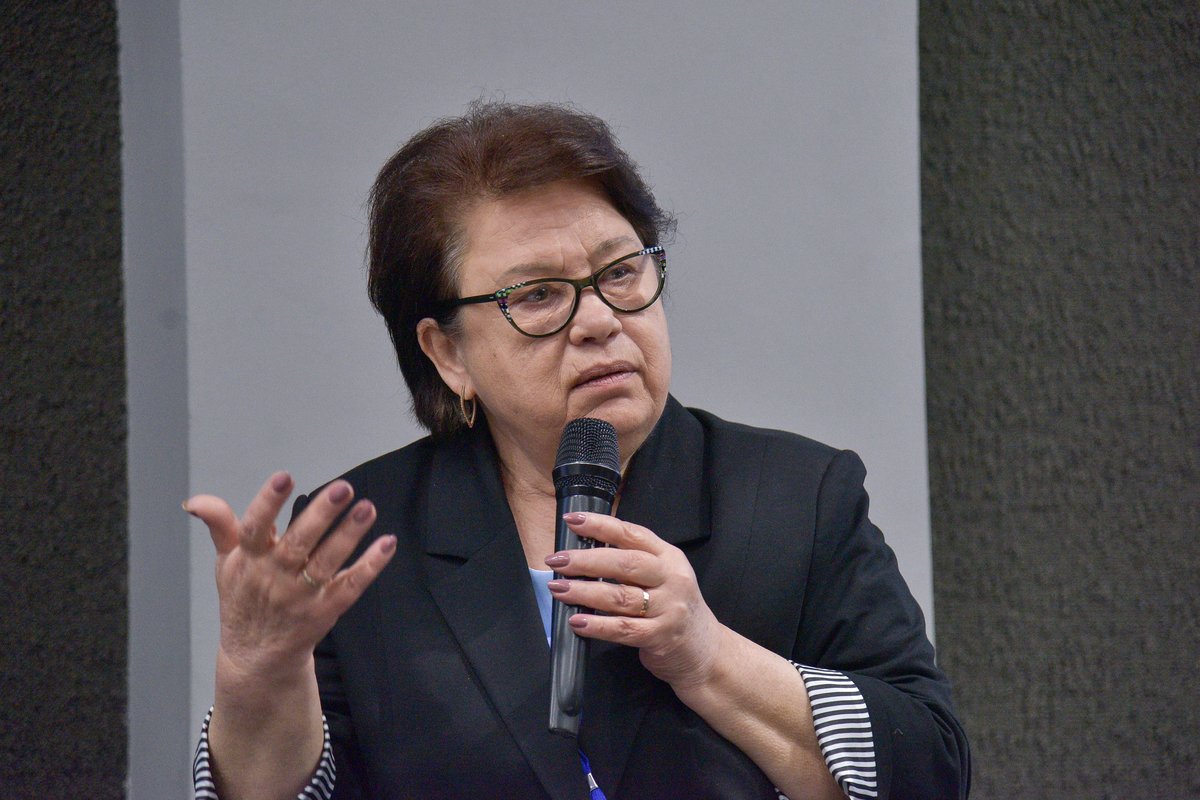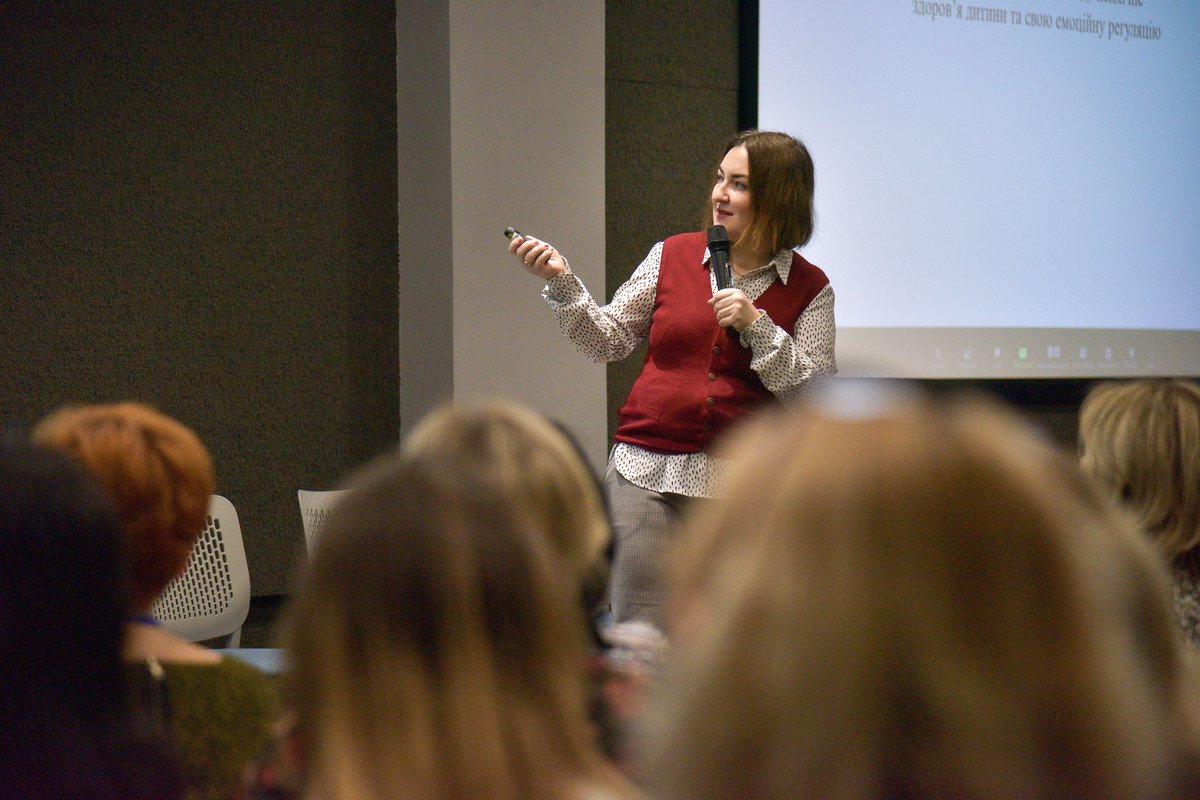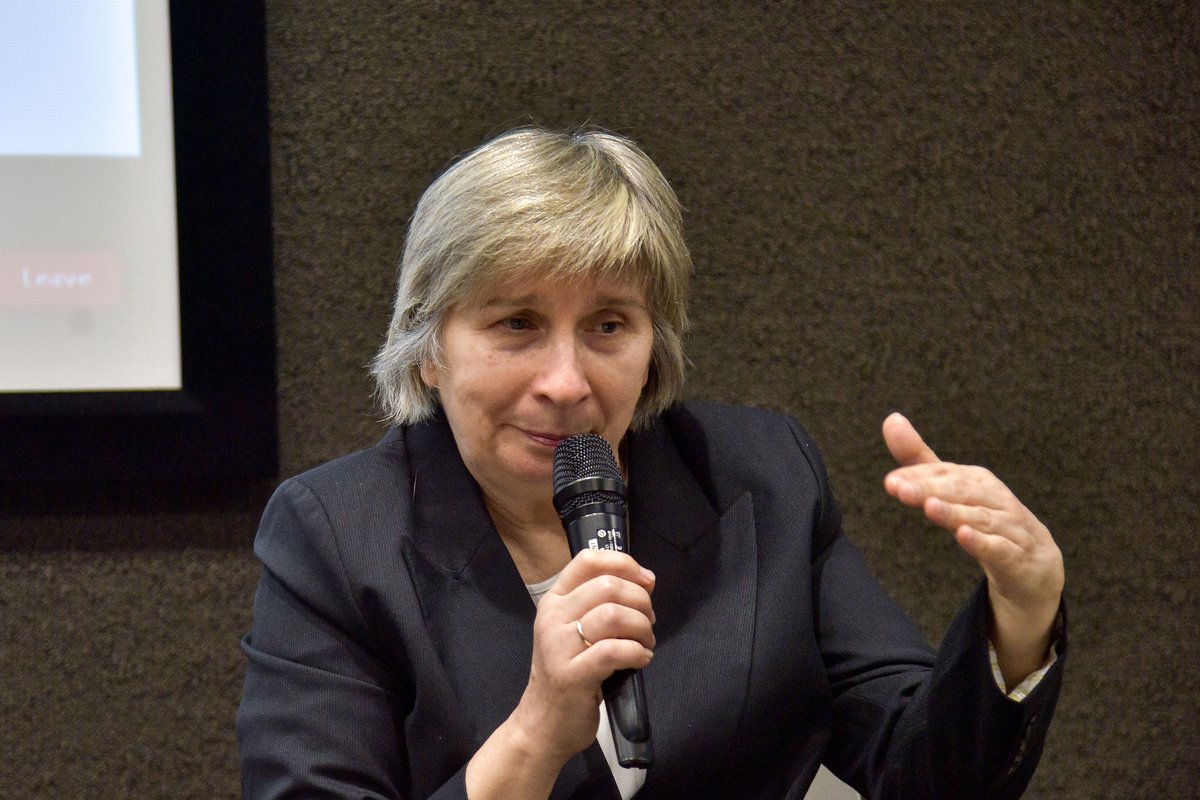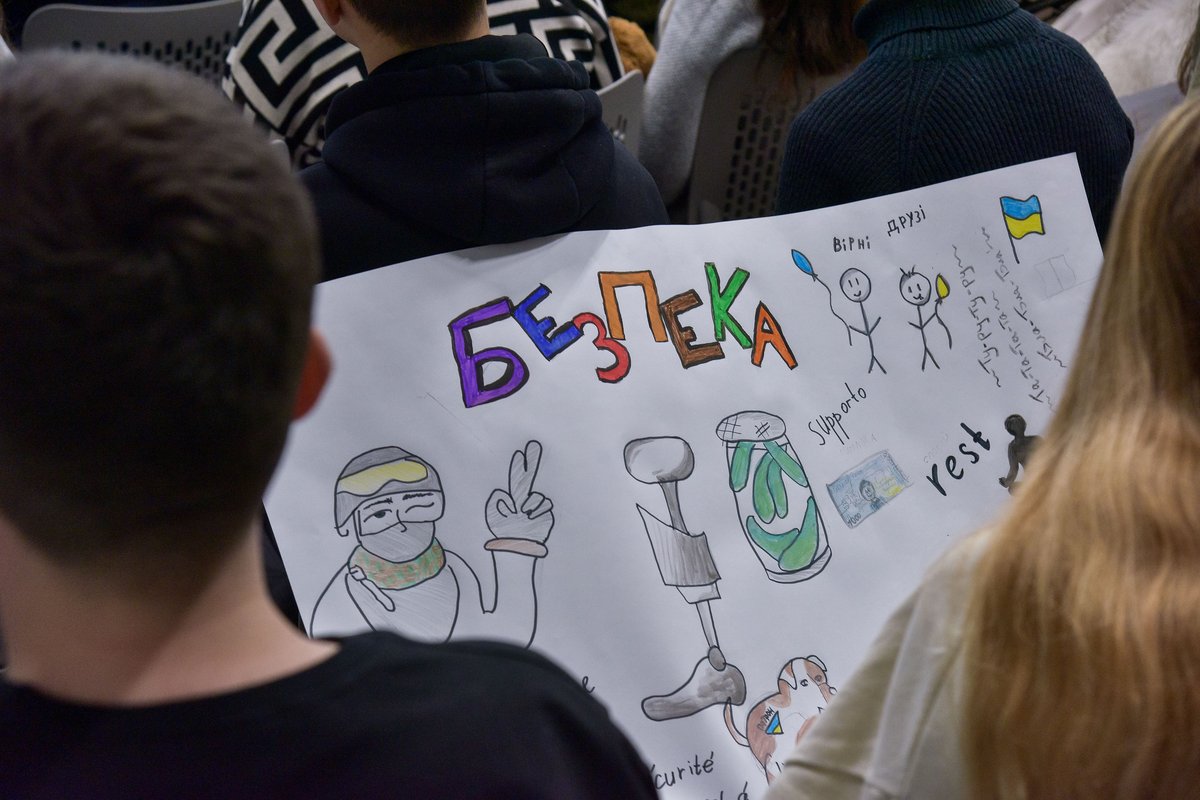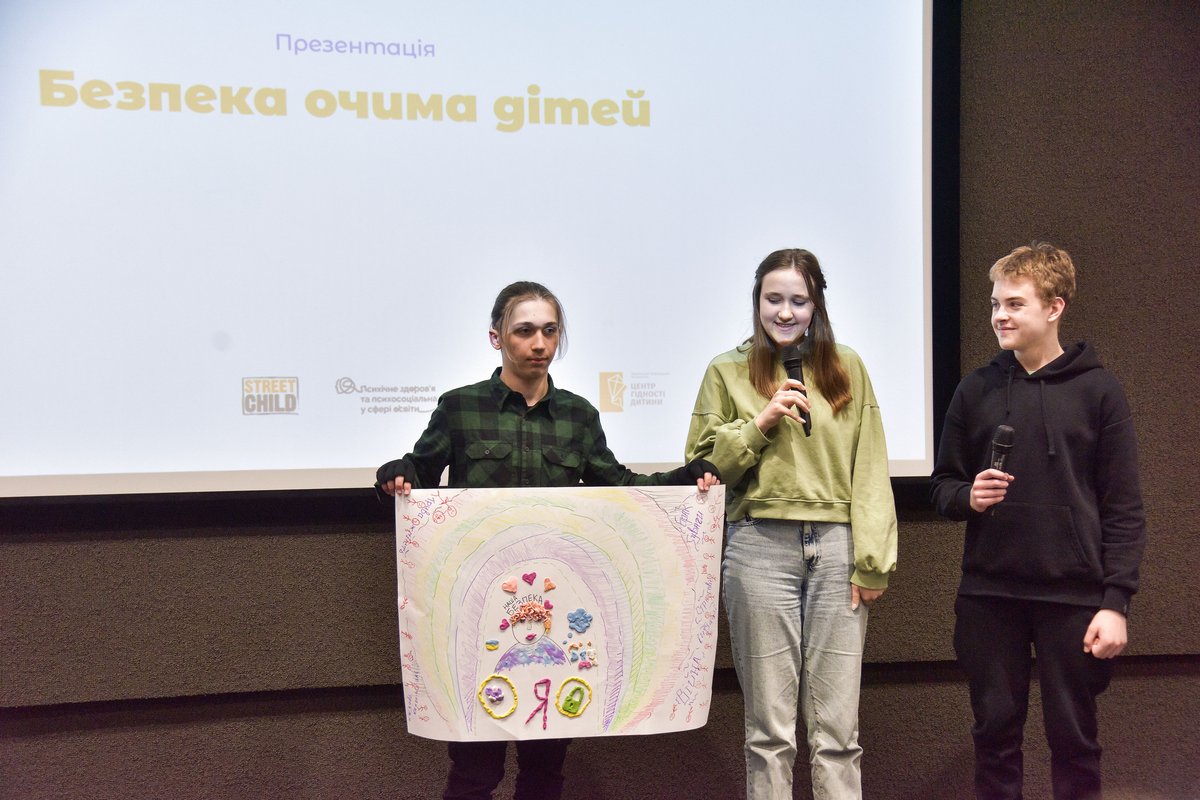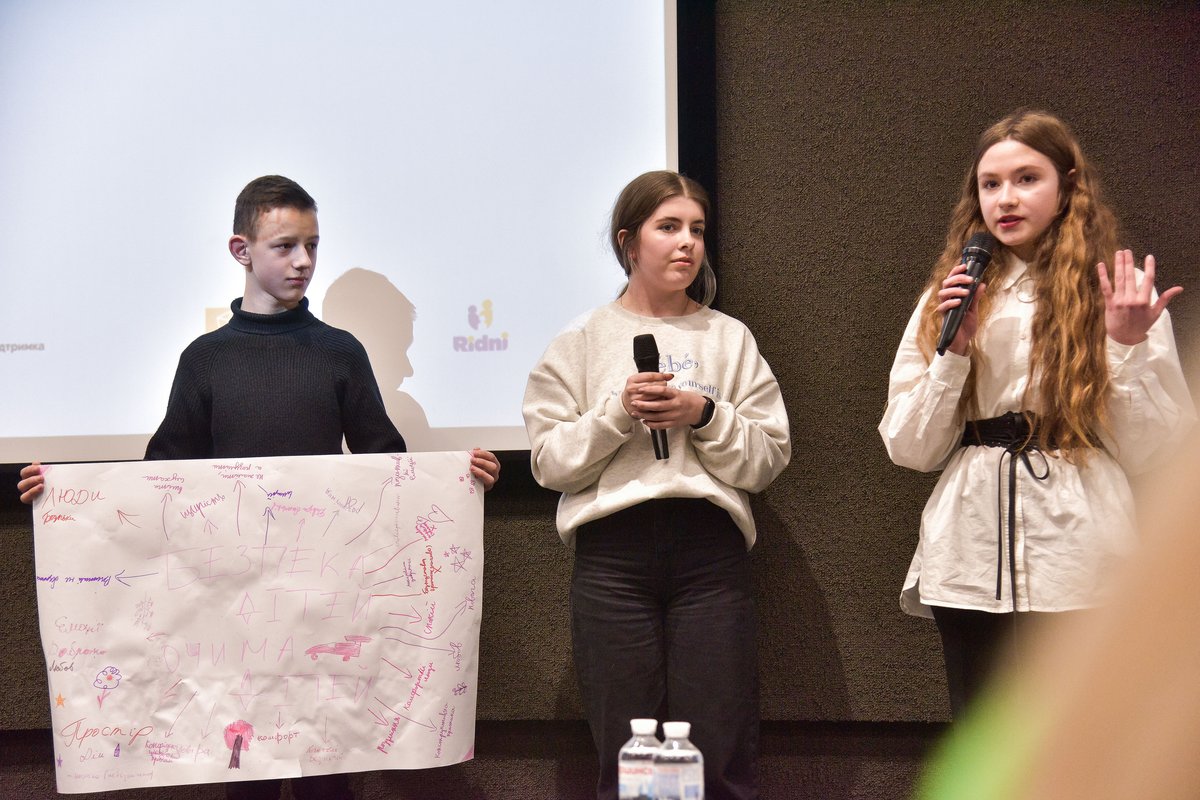"As long as a Ukrainian child feels unsafe, no child in the world can feel safe" - Commissioner of the President of Ukraine for Children's Rights
On April 5-6, Lviv hosted the conference "Protecting Children in Time of War". The event was attended by about 150 representatives of non-governmental and governmental organizations from all over Ukraine.
Organizers: Ukrainian Catholic University, Center for Child Dignity, Ridni Charitable Foundation.
The main focus of the discussion was the three pillars of a fulfilling childhood: dignity, joy, and safety. The two-day event included 6 discussion panels:
- The concept of child safety in times of war. What it means to be and feel safe
- Prevention and intervention as effective models of child protection;
- Sharing cases of civil society organizations and their experience gained during the war
- What are the best interests of the child? Why should institutions work together for the best interests of the child?
- Mental health of children and emotional regulation of parents - about the experience of researching the first 6 months of the war.
- Play as a mechanism for preserving childhood.
"As long as the war continues, children and adults will not feel safe," says Commissioner Daria Gerasymchuk. She believes that the first priority is to return every child to Ukraine, no matter where they are. "It will be easier from the European Union, from other countries where children and their parents left to hide from Russian attacks. And it will be incredibly difficult, but we are working in this direction, to return every child who was abducted."
Ms. Daria emphasizes: "This is not just a war, but a genocidal policy towards Ukrainians through children. We have to remember this all the time, because the crimes they commit, including murder, mutilation of children, sexual violence, psychological trauma and the creation of uninhabitable conditions in the occupied territories, abduction with a change of citizenship and transfer to Russian citizens for guardianship, care and adoption, are all components of the crime of genocide.
The numbers of casualties among children are already catastrophic. Today, we have verified information about a little more than 1,500 children, but we are clearly aware that this information is not only inaccurate, but we are talking about much higher figures of 200, 250, 300 thousand children - and these are catastrophic figures!
Ukraine is using all possible mechanisms to ensure the safe return of children. Now it is not only a matter of Ukraine, but also of building a new system of child safety in the world! As long as a Ukrainian child feels unsafe, no child in the world can feel safe. Because, unfortunately, this system that we had in the world, which theoretically should have worked correctly, in practice turned out to have a lot of gaps when some of the players in the international community do not want to play by the rules."
During the conference, Lyudmyla Volynets, PhD in Political Science, Honored Social Worker, emphasized the urgent need to involve professional psychologists in working with children during the war.
"You are now focused on organizing help for a specific child, and you have specific children in mind," Ms. Volynets addressed the conference participants, "But there is another type of activity - the state level, when certain risks need to be foreseen. I represent the state level, when any such conference pushes you to realize certain things and how to regulate them in the legislation or in the regulatory framework. Actually, what Daria Mykhailivna (Daria Gerasymchuk, Advisor to the Presidential Commissioner for Children's Rights and Child Rehabilitation - ed.) wrote about is what is being done with great difficulty in our country - a program to preserve mental health," says Ms. Volynets.
She notes that the child protection system did not have many professional psychologists before the war. "There should be a psychologist in any organization that deals with children," says Volynets.
The expert and lawmaker believes that the system should be structured in such a way that a child can work with one specialist for a long time: "It is necessary that the child does not change psychologists every 5-6 meetings. This is extremely important today. Otherwise, we end up with nothing but a child being afraid of a psychologist," says Volynets.
In her speech at the conference "Protecting Children in Time of War," Larysa Didikovska, PhD in Psychology, head of the Gestalt Therapy Association in Ukraine, focused on the issues of what traumatic regression and traumatic growth are and how to ensure that Ukrainians have much more of the latter than the former.
"To make it easier for children to find themselves in a vector of traumatic growth rather than traumatic regression, they need a resource person nearby - either a foster mother or, thank God, a mother. What should they be able to do? When the chickens get scared? When kittens start to squeak - when a cat is scared. Why? Because the offspring are not competent. Offspring do not yet have the life experience that parents have."
The psychotherapist named 5 conditions for a climate of safety:
- Love, protection
- stability
- warmth - emotional, mental, physical;
- freedom of action - to be there, but to allow exploration and responsibility for safety;
- Predictability, predictability.
"If we communicate this to the world, to ourselves, and to those we work with, traumatic growth is more likely than traumatic regression. A healthy way of living with traumatic experience by parents will ensure a healthy way of living with traumatic experience by children," Larysa Didikovska noted.
One of the most important parts of the conference was the presentation of children's work on how they see their own safety. In this way, we not only generated and refined ideas on child safety, but also asked for and took into account their opinions.
